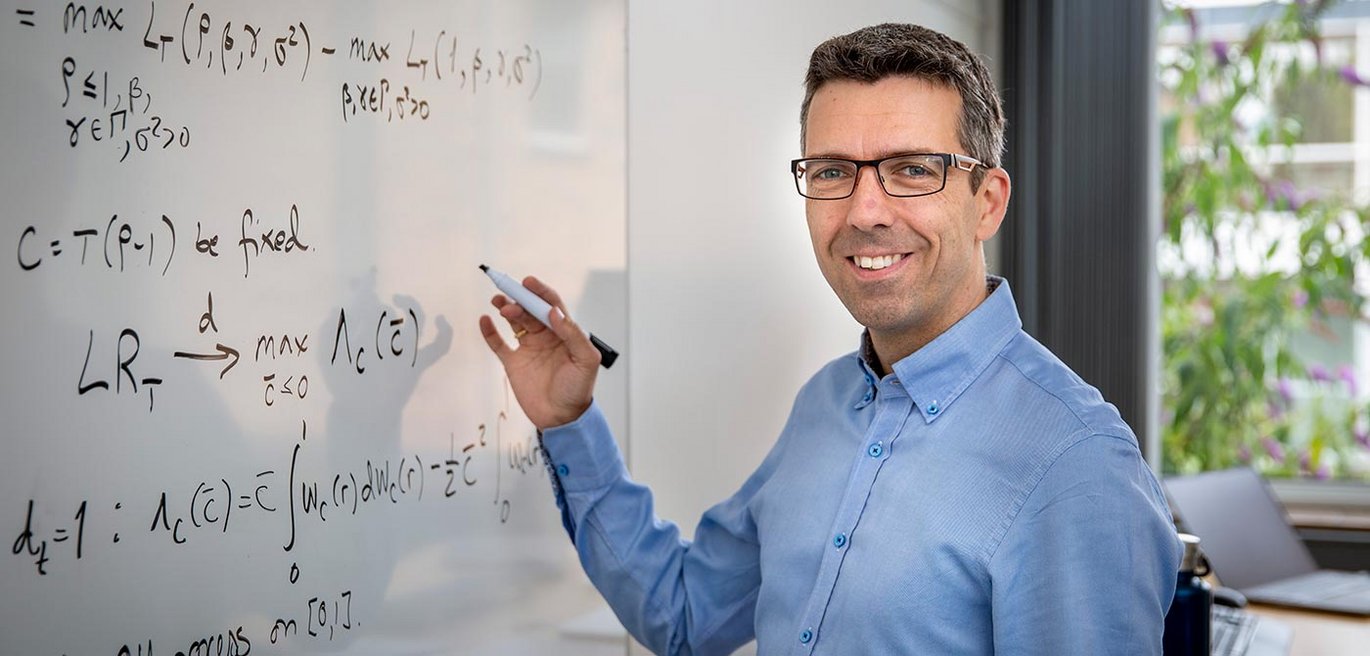Research to make better research
With almost DKK 36 million from the Danish National Research Foundation, the Department of Economics and Business Economics at Aarhus University will set up a world-leading centre for econometrics – one of the foundations of empirical research.

There is nothing modest about the ambitions. The vision is to create one of the world's leading centres for econometric theory and method development. At the Department of Economics and Business Economics at Aarhus BSS at Aarhus University, they believe that they have several aces up their sleeve to make their ambitions a reality.
With almost DKK 36 million from the Danish National Research Foundation, the department is establishing the Aarhus Center for Econometrics (ACE). And they have one of the world's leading econometricians (as they are called) at the helm.
Three years ago, Professor Morten Ørregaard Nielsen returned to Denmark and Aarhus University on a DNRF Chair grant from the Danish National Research Foundation after 18 years abroad at the very top of this part of the research community.
"Small groups at universities all over the world are doing research on econometrics, but now we want to establish a basic research centre in Aarhus that will create a larger, cohesive group with common goals. We already have agreements with several of the really big players in the field, who will be affiliated with ACE and who will be able to spend one month a year in Aarhus," says Morten Ørregaard Nielsen.
Some of the top researchers at leading foreign universities who will now be affiliated with ACE are actually Danes, and this may make them want to spend even more time at ACE. He believes that it is no coincidence that many of the top researchers in econometrics worldwide are Danish.
"Econometrics is a discipline that we in Denmark have prioritised for several decades. That's why there are many Danish top researchers out there within the field," says Morten Ørregaard Nielsen.
Head of the Department of Economics and Business Economics Thomas Quistgaard Pedersen also believes that the ambition is realistic.
"We have prioritised the area at the Department of Economics and Business Economics for many years, which is why we have a particularly strong and talented group of econometricians. With support from the Danish National Research Foundation and with Morten at the helm, the ambitions for ACE are therefore very realistic, and the centre will undoubtedly help put Aarhus on the international map even more than it is today," says Thomas Quistgaard Pedersen.
What is econometrics?
But what is econometrics? Morten Ørregaard Nielsen explains it like this:
"Behind evidence-based decisions are empirical studies based on quantitative analysis of data. Econometrics develops the models and methods used to carry out these empirical analyses of often very large amounts of data."
However, the amount of data and the complexity of both data and economic models have grown significantly in recent decades, and therefore there is a need to develop new, robust econometric tools and methods, and this is what ACE will work on.
Morten Ørregaard Nielsen gives an example:
"Think of an empirical study with register data, where there are many variables and many observations on each variable. Classic econometric analysis assumes that the number of variables is a small, fixed number, while the number of observations is ‘large’ – mathematically it is infinite. But if the data actually contains, say, 40,000 observations on 10,000 variables, then the classical assumption doesn't seem reasonable. Instead, we ought to perform the analysis on the assumption that both are ‘large’. Such an analysis requires the development of new methods and theory, which will ultimately have an impact on the conclusions of the empirical study."